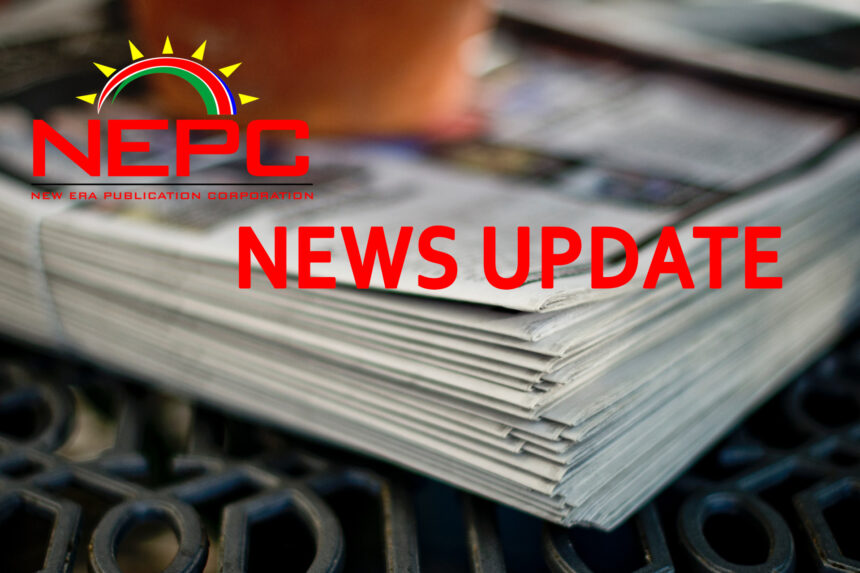Namibia has made history. Netumbo Nandi-Ndaitwah has been elected the country’s first female president, and she becomes only the second in Africa.
The Swapo Party maintained its majority in the National Assembly, followed by the Independent Patriots for Change (IPC) in second and Affirmative Repositioning (AR) Party in third.
While these achievements mark significant progress, they also shine a spotlight on a persistent issue: The gap between young Namibians and their understanding of the country’s political history and liberation struggle. This disconnect threatens not only the preservation of our democratic legacy but also the active participation of the youth in shaping Namibia’s future.
“You have made history, now tell it to someone because he or she will be the one to carry it on.” This statement is more than a call to action – it is a responsibility for all Namibians, especially the elders – to bridge this gap.
A Legacy at risk
Namibia’s liberation struggle is a story of resilience, unity, and sacrifice. It reflects the vision of leaders like Sam Nujoma, Hendrik Witbooi, and others who believed in a free Namibia — and laid the foundations of our nation.
However, this rich legacy is at risk. Many elders who lived through the struggle are aging, and with them, vital stories and lessons could be lost.
Educational gaps: Furthermore, schools often fail to deeply engage pupils with Namibia’s political history. Civics classes touch on governance but rarely emphasize the significance of the liberation struggle.
Limited dialogue: Opportunities for inter-generational conversations are scarce, leaving many young people disconnected from their heritage.
If we fail to address these issues, we risk creating a generation that is unprepared to appreciate the sacrifices that secured their freedom and the responsibilities that come with it
The price of disconnection
The recent elections exposed the consequences of historical illiteracy among youth.
Divisive rhetoric: Campaigns marred by misinformation and tribal narratives were used to exploit the lack of historical understanding among the young electorate.
Political apathy: Surveys show that young Namibians are less likely to vote, reflecting disillusionment and disengagement with governance.
Fragmentation: The proliferation of political parties, some rooted in personal interests or tribal affiliations, threatens Namibia’s unity.
Namibia’s youth are at risk of becoming spectators in their democracy rather than active participants. This disengagement could erode the unity and vision that built the nation.
The role of elders
Elders are the custodians of Namibia’s history. Their stories, struggles, and victories offer valuable lessons for today’s challenges. It is their responsibility to ensure that this history is not lost but passed on.
Storytelling astradition: Communities should host storytelling evenings where elders share experiences of the liberation struggle.
Mentorship programmes: Elders can mentor young people, providing context for Namibia’s political journey and inspiring pride in its heritage.
To the elders: “You have made history, now tell it to someone because he or she will be the one to carry it on.”
The role of education
Schools must also play their part. Namibia’s history should be central to the curriculum, taught not as a series of dates but as a living narrative that connects the past to the present.
Civics education should equip students with the tools to critically analyse political rhetoric, appreciate democratic values, and actively engage in governance.
Empowering the youth
Namibia’s youth are the torchbearers of the nation’s future. But they need to understand the foundation they stand upon. Empowering them requires a collective effort.
Civil society initiatives: Organisations can host events, workshops and campaigns to promote civic engagement and historical awareness.
Media platforms: Traditional and social media can amplify stories of Namibia’s history, making them engaging and accessible.
Youth action: Young Namibians must take the initiative to learn about their history, engage in political discourse, and challenge divisive narratives.
A shared vision for Namibia
Elections come and go, but nation-building is an ongoing process. The lessons of Namibia’s history must inform its future. This is a call to action for all Namibians:
Elders, share your wisdom: Your stories are a bridge to the future. Educators, inspire pride. Teach history not as a relic but as a living legacy. Leaders, set the tone.
Promote unity over division in your actions and words.
Youth, seek knowledge. Understand your heritage and actively engage in shaping Namibia’s destiny.
As the dust settles from this historic election, let us remember that the work of democracy is never finished. Together, Namibia can build a future that honours its past while embracing its potential.
*Michael Lukas is a B.Acc (Hons)(UNAM) grandaunt and aspiring Chartered Accountant. He is passionate about youth empowerment, civic engagement, and fostering a sense of unity and purpose among Namibians.


